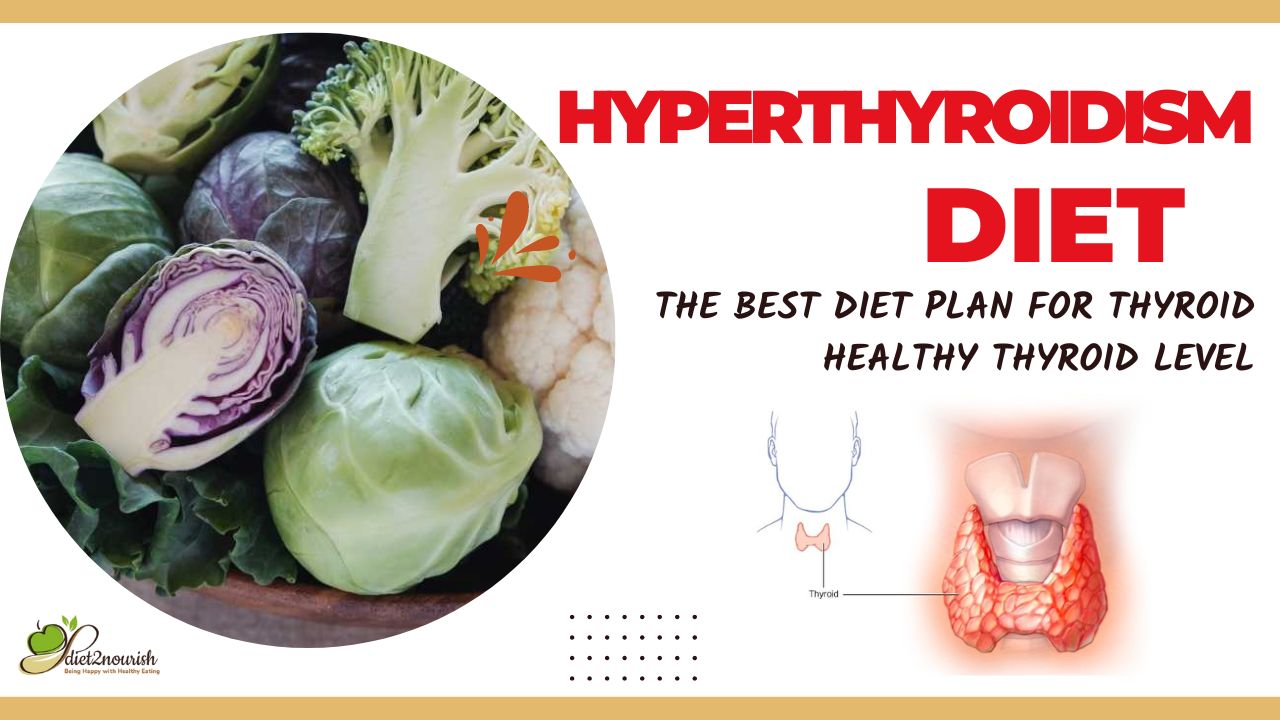Hyperthyroidism is a condition that occurs when the thyroid gland produces too much thyroid hormone, leading to an overactive metabolism. The symptoms of hyperthyroidism can include weight loss, fatigue, muscle weakness, irritability, and anxiety. A proper diet can help manage these symptoms and support overall health. In this article, we will discuss a diet chart for hyperthyroidism
- Increase iodine intake Iodine is an essential mineral that is needed to make thyroid hormones. Consuming iodine-rich foods such as sea vegetables, seafood, dairy products, and eggs can help support thyroid function in individuals with hyperthyroidism. However, it is important not to consume excessive amounts of iodine, as this can exacerbate hyperthyroidism.
- Eat selenium-rich foods Selenium is another essential mineral that is important for thyroid health. Consuming selenium-rich foods such as Brazil nuts, seafood, eggs, and whole grains can help support thyroid function in individuals with hyperthyroidism.
- Consume anti-inflammatory foods Inflammation can worsen the symptoms of hyperthyroidism. Consuming anti-inflammatory foods such as fatty fish, nuts, seeds, fruits, and vegetables can help reduce inflammation and support overall health.
- Limit caffeine and alcohol consumption Caffeine and alcohol can exacerbate the symptoms of hyperthyroidism, including anxiety and irritability. It is important to limit caffeine and alcohol consumption to manage these symptoms.
- Increase calcium intake Hyperthyroidism can lead to bone loss, so it is important to consume calcium-rich foods such as dairy products, leafy greens, and fortified foods. Vitamin D is also important for calcium absorption, so it is important to consume vitamin D-rich foods or take a vitamin D supplement.
- Eat frequent small meals Hyperthyroidism can lead to weight loss and increased appetite. Eating frequent small meals throughout the day can help manage these symptoms and provide the body with a steady supply of nutrients.
Sample diet chart for hyperthyroidism:
Breakfast:
- Oatmeal with nuts and seeds
- Banana
- Green tea
Snack:
- Greek yogurt with berries
Lunch:
- Grilled chicken with quinoa and vegetables
- Orange
Snack:
- Carrots and hummus
Dinner:
- Grilled fish with sweet potato and vegetables
- Milk
Conclusion A proper diet can help manage the symptoms of hyperthyroidism and support overall health. Consuming iodine-rich and selenium-rich foods, anti-inflammatory foods, and calcium-rich foods can help support thyroid function and prevent bone loss. Limiting caffeine and alcohol consumption and eating frequent small meals throughout the day can also help manage symptoms such as anxiety and weight loss. It is important to consult a healthcare professional before making any major dietary changes.
